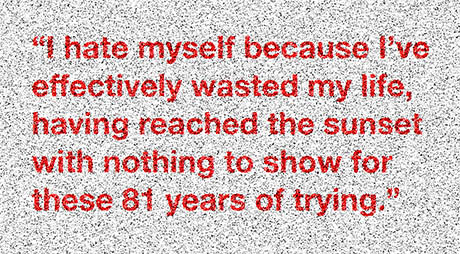When I was in high school, one of my friends told me her sister recognized my father at a bank the day before. Her sister was a teller at the biggest bank in town, the same one where we had our accounts. I asked my friend how in the world my sister could have recognized my father.
“She said he looks just like you,” my friend said. “So she called him over and asked him if he was David’s father. She was right.”
I never thought I looked like my father, but I seem to have been mistaken — at least according to a lot of people who have known us both. Older folks in the family told me I looked just like what my grandfather did as a young man.
I bristled at such comparisons. I didn’t want to look like anyone. I didn’t want to be compared to anyone in the family. I hadn’t realized at the time how much dysfunction there was in my extended family, but I somehow knew. I didn’t want to be like any of them. I then spent decades running away from them.
Now that they’re all gone — and I’m safe from their dysfunction — I understand the ways in which I have to embrace what they were. It’s time for me to accept what I got from them. And it’s time for me to redeem that family history — as best I can — by the choices I make.

 We’re neither friends nor enemies, just strangers who share the past
We’re neither friends nor enemies, just strangers who share the past ‘This path leads to somewhere I think I can finally say, I’m home’
‘This path leads to somewhere I think I can finally say, I’m home’ When love finally dies, it’s like a fever breaks and the pain is gone
When love finally dies, it’s like a fever breaks and the pain is gone

 Society needs storytellers to help make sense of a changing world
Society needs storytellers to help make sense of a changing world My bad teen poetry suggests I’ve always hungered for missing love
My bad teen poetry suggests I’ve always hungered for missing love